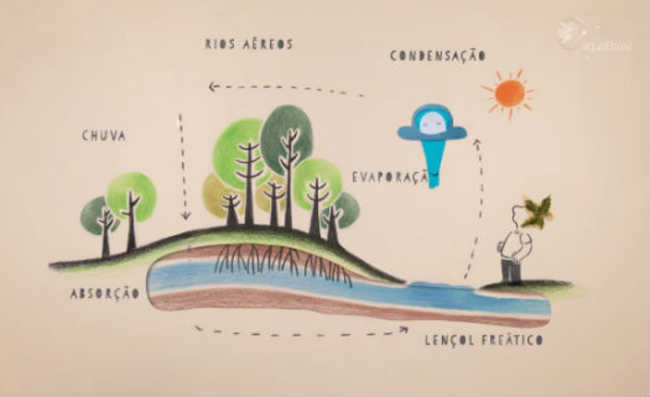Which way to longevity?
Cellular recycling process could be the path to longevity

Image: Val Vesa on Unsplash
Longevity is one of the greatest obsessions of human beings. Living longer and aging healthily are two challenges constantly faced by medicine and science, which have already achieved great advances, with gains for life expectancy, but very little is known about the aging process itself. A study, published in the journal nature, managed to relate the aging process with the speed with which mammals can process cell waste: the faster the cleaning, the greater the longevity.
The research, led by Salwa Sebti and Álvaro Fernández, postdoctoral researchers at the Center for Autophagy Research gives Southwestern Medical Center from the University of Texas found that mice with better levels of autophagocytosis (the process by which cells discard toxic or unwanted substances that impair cellular health) live longer and in better health. In other words: the faster the body recycles its waste, the greater the time and quality of life.
Beth Levine, director of Center for Autophagy Research and one of the study participants, explains that the mice with phagosomes (which are the cells that clean the body) more efficiently lived about 10% longer and were less likely to develop cancers and heart and liver diseases related to the aging. The conclusion is based on twenty years of studies carried out at the research center, which allowed the creation of genetically modified mice to have a more efficient organism.
The first step came when the group discovered the enzyme beclin, which helps phagosomes accelerate their speed, playing a very important role in autophagocytosis - and consequently in aging. Since then, the research center has managed to prove that autophagocytosis plays a fundamental role in human health, being able to prevent neurodegenerative diseases, cancer and infections. What is clear is that improving the performance of autophagocytosis is an important way to expand life expectancy. The process loses performance with aging, which contributes to aging itself, in a vicious cycle.
Now, researchers have proven that, in addition to increasing life expectancy, having a body-cleaning mechanism, such as cellular waste recycling, also improves the quality of life in mammals. The answer came through genetic alterations in the enzyme beclin, which is slowed down by an inhibitor called BCL2. The genetic alteration of beclin meant that this inhibitor could no longer bind to the enzyme, allowing for a faster and more efficient autophagocytosis process. In other words: a deep and quick cleaning.
From there, they created transgenic mice with this improved enzyme and observed their life cycle. As expected, these mice had better levels of autophagocytosis from birth in all their organs. These animals had a higher level of protection against an Alzheimer's species present in rats and, now, it has been proven that better cell cleaning made these animals live longer and better.
- What are transgenic foods?
In the experiment, the scientists allowed a group of 102 mutant mice and 68 normal mice to age naturally. Normal ones got old and started dying at 15 months. After 30 months, all normal mice were dead. The mutants began to die later, at 22 months, and all were dead by 40 months. The result indicates that the changes made in beclin increased the survival of rats by about 5 months, equivalent to a 16% increase in life span. In a human with a life expectancy of 80 years, this would be equivalent to living about 12 years longer.
The study points to an important path for human health and for the development of new drugs capable of improving our cell recycling mechanism. Just as science can help improve our inner cleaning mechanism, so too is taking care of the amount of waste we put into our bodies. The group of researchers must now work on medicines capable of improving the auto-phagocytosis mechanism, in search of gains for humanity in terms of quality of life and longevity.









